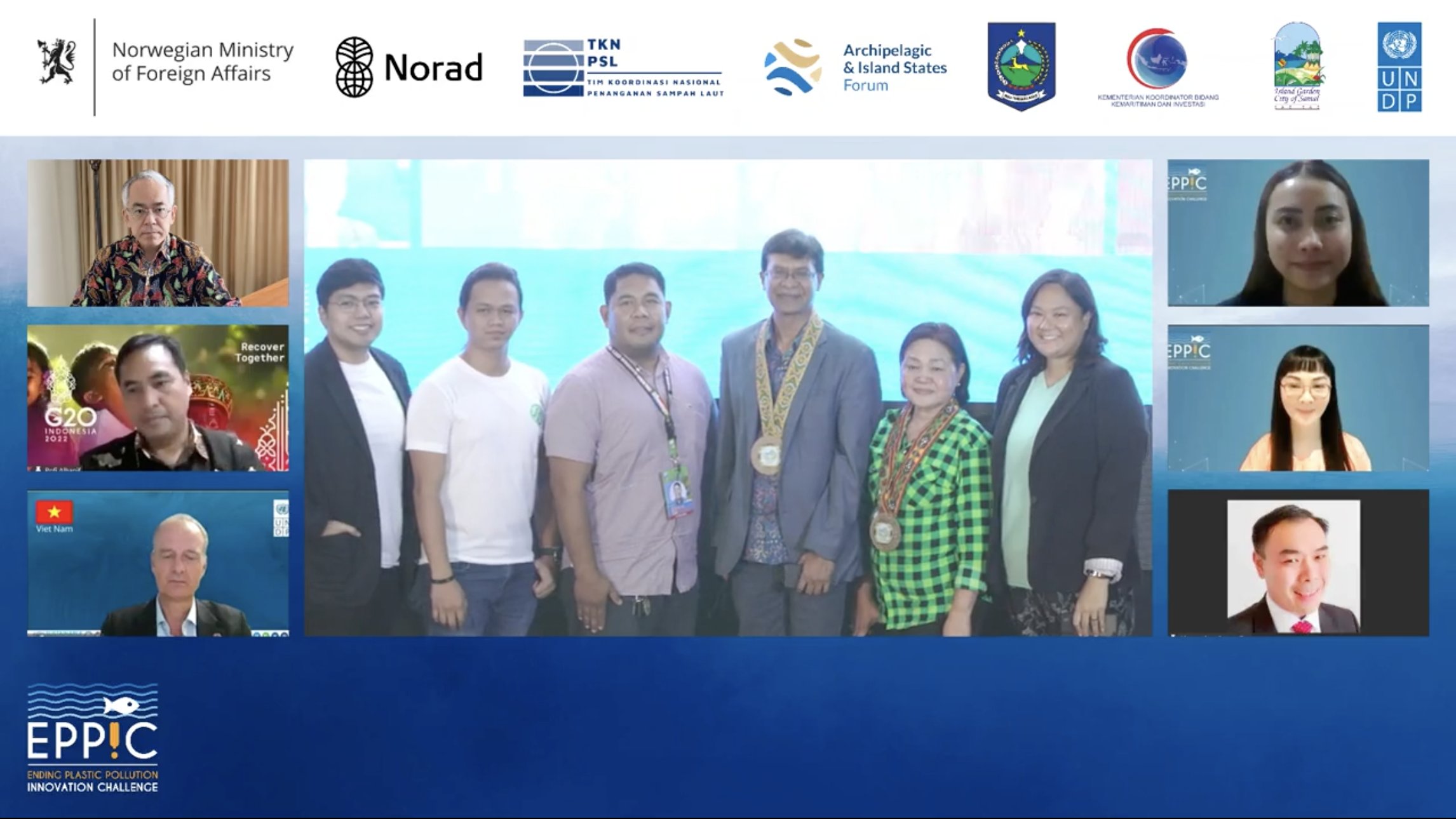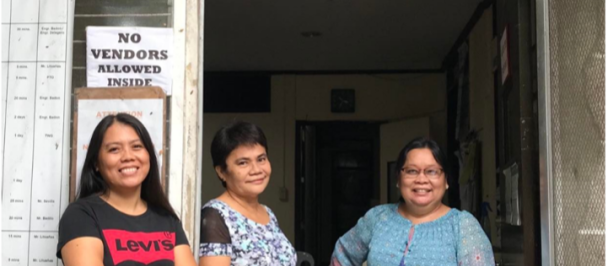Norway, UNDP support international clean-up and local innovators to fight marine plastic pollution in Asia Pacific
September 26, 2022
21 September 2022 – Four young innovators from the Philippines and Indonesia were hailed for implementing solutions to address marine plastic pollution in selected pilot areas in the Asia Pacific region.
Through the Ending Plastic Pollution Innovation Challenge (EPPIC), the four innovators - Pure Oceans Philippines, TrashCash PH, Siklus, and Alterpacks – each received USD 18,000 seed-funding to roll out their proposed solutions that address the marine plastic pollution in Samal Island in the Philippines and Lombok Island, Mandalika in Indonesia.
In the Philippines,up to 60 billion plastic sachets are used and discarded annually.,Samal Island generates approximately 15,000 tons of waste yearly. In Indonesia, the annual waste generation is estimated to be up to 6.8 million tons, with Mandalika, Lombok Island generating up to 215.7 tons of waste per year as of 2020. Both sites have had high-foot traffic of tourists prior to the COVID-19 pandemic. Among the most common types of waste generated in both islands are PET bottles and residual plastics such as single-use food packaging. With the gradual re-opening of borders for both domestic and international tourists, it is expected that the waste generation for both areas will rise again.
“We cannot let this continue. With the worsening plastic crisis, the pressure to shift to a circular economy is greater than ever. It is imperative to find solutions that can merit value to used plastics, increase financing for infrastructure that can improve local collection and recovery, invest in renewable resources, and ultimately eliminate waste from being generated,” said UNDP Philippines Resident Representative Selva Ramachandran.

In Samal Island, TrashCash is implementing an artificial intelligence-based technology to improve the collection, recovery, and monitoring of plastics wastes through their cloud-based platform and incentive mechanism, while Pure Oceans is prototyping a micro-circular economy model in coastal areas through upcycling of residual plastics into tiles and bricks. In Mandalika, Alterpacks introduced the conversion of food waste as alternative packaging, while Siklus rolled out a door-to-door delivery refill of consumer products.
In celebration of the International Coastal Clean-up Day last September 17, a multi-country clean-up drive was also held in the Philippines, Indonesia, and Singapore. In Samal Island alone, over 200 volunteers were able to recover 608 kilos of non-biodegradable wastes from the clean-up, which were combination of plastics, bottles, tires/rubbers, and textiles.
“Aside from the plastic waste generated by local communities, Samal Island is also a catch basin of other shore wastes from neighboring towns and cities in Davao Gulf. The solutions from the EPPIC Project give us the opportunity to showcase that a circular economy is possible in an island city like Samal. And we hope that the other local governments in the region will follow. Plastic knows no border and we cannot address this alone,” said Samal Island City Administrator Nieljun Esdrellon.
EPPIC is an ASEAN-wide innovation challenge that aims to tackle marine plastic pollution through community-based innovative solutions. It is being led by the United Nations Development Programme (UNDP), with support from the Norwegian Ministry of Foreign Affairs and the Norwegian Agency for Development Cooperation (Norad).
For more information about EPPIC - http://plasticchallenge.undp.org.vn/ [E]

 Locations
Locations



